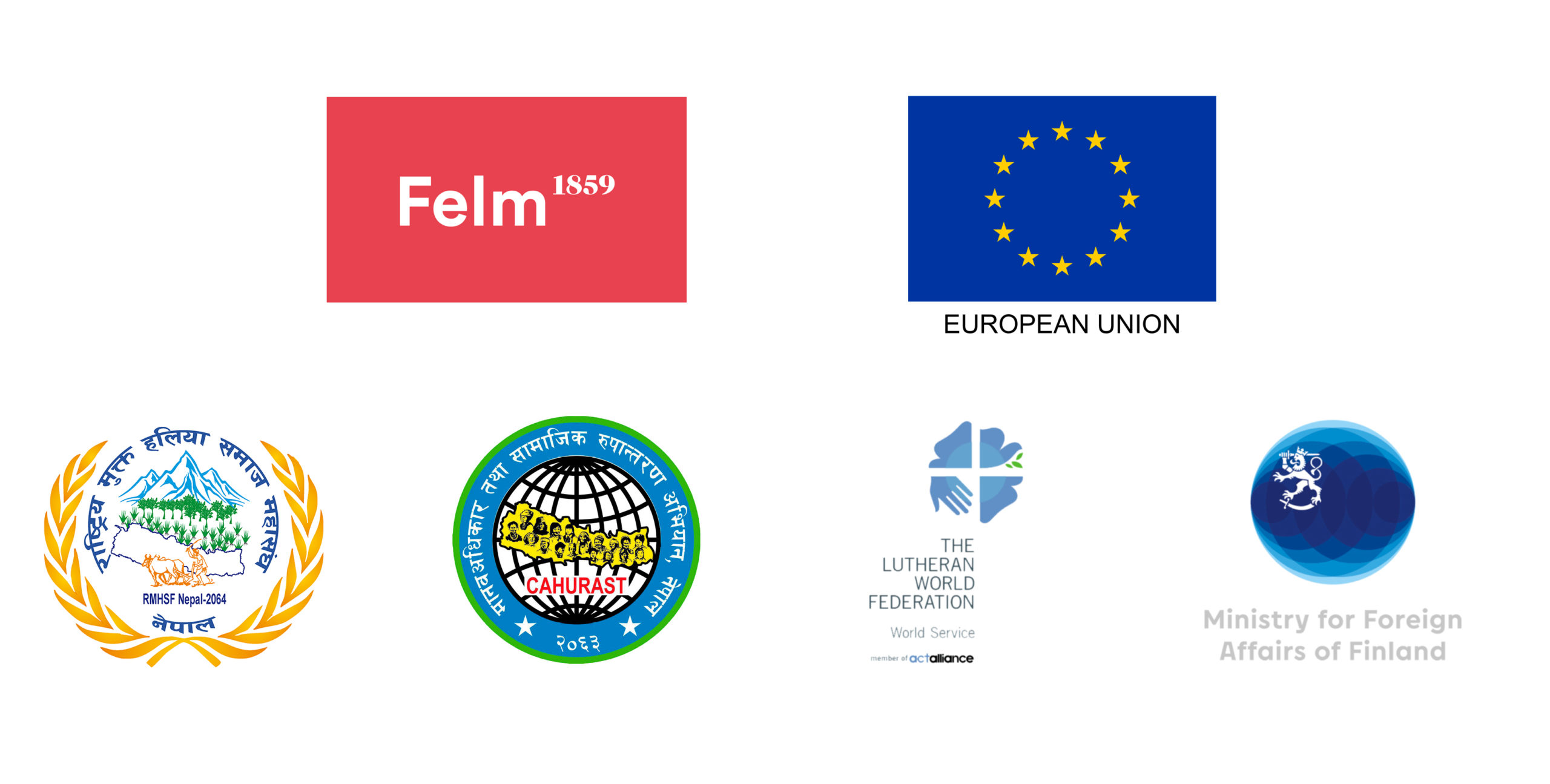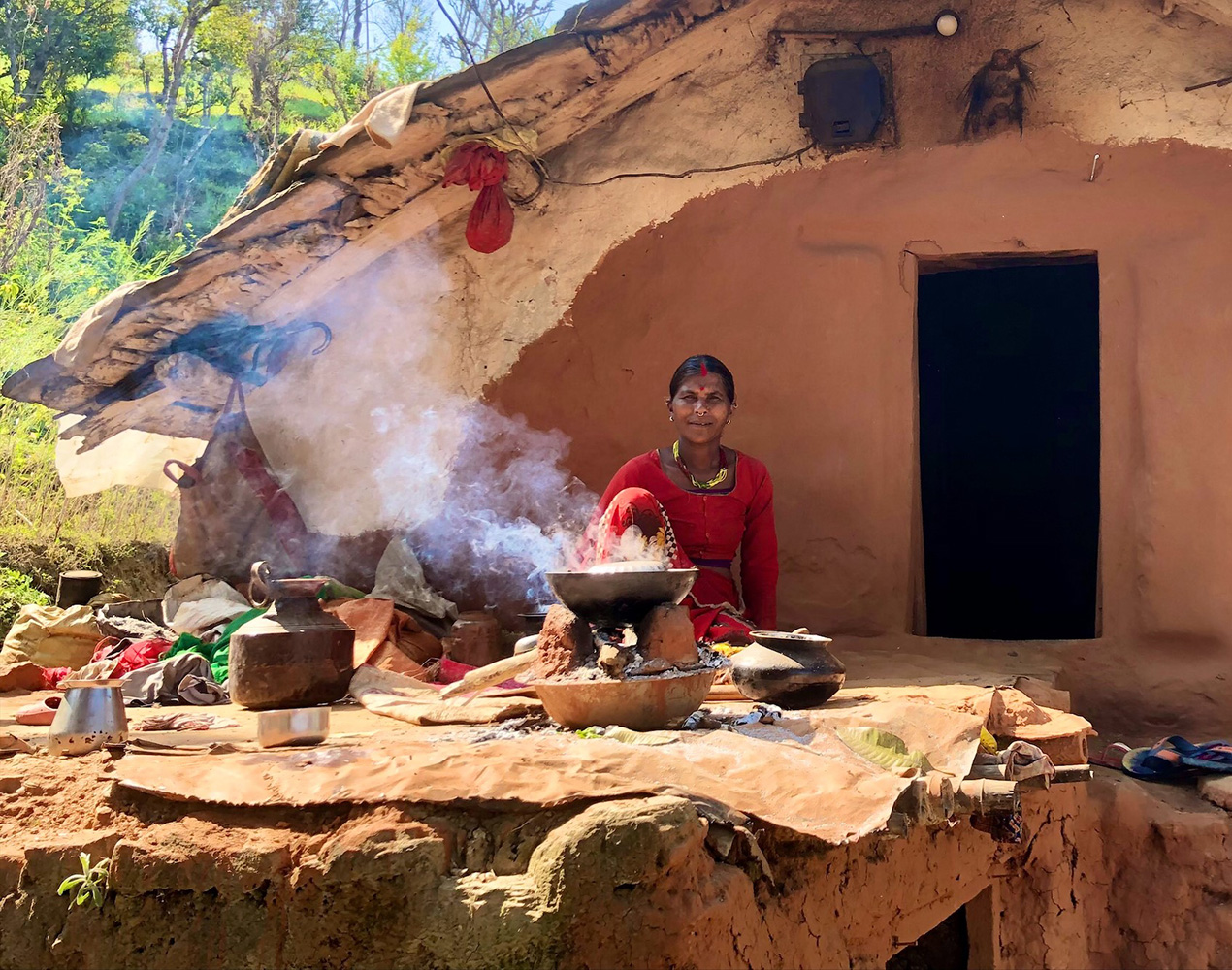PRESS RELEASE March 27, Kathmandu: A new report, called the ESCR Yearbook 2022, is being launched on the 27th of March 2023, presenting the current human rights situation of freed Haliyas, Nepal’s ex-bonded laborers, in five districts of Sudurpaschim Province. The human rights studied were economic, social & cultural rights (ESCR); these are the right to education, right to health, right to decent work and right to housing/rehabilitation services.
Traditionally, Haliyas have worked on other people’s land, in slave-like conditions with little or no pay. In 2008, the Haliya system was abolished by the government of Nepal, but the exact population and their condition is still lacking, and many of the freed Haliyas seriously lack access to the resources and opportunities available at the local, provincial, and federal level.
One of the key findings of the report was that even after the abolishment of the Haliya system, still 17% among men and 9% among women respondents are forced to continue being Haliya because of their economic situation. The major reason the freed Haliyas are not being rehabilitated is because of their legal identity – a Haliya identity card. 83% among freed Haliyas still don’t have the Haliya ID cards. An analysis of the data gathered in the southern parts of the Sudurpachim province shows that freed Haliyas of Kanchanpur are far behind in accessing government services and entitlements.
The findings of the report are based on the data collected through an innovative mobile app, representing altogether 7,982 households and 211 duty-bearers who are in positions of power in their local communities, including working in the municipality, education, and health institutions. The report concludes that securing the human rights of the freed Haliyas still require efforts on multiple fronts. The study draws evidence-based recommendations for immediate action and enhanced effort in fulfilling the rights of the freed Haliyas.
Freed Haliya Empowerment project (ADHICAR) is being implemented in collaboration with four organizations; Felm Nepal, The Lutheran World Federation, the Nepalese Campaign for Human Rights and Social Transformation Nepal (CAHURAST), and Rastriya Haliya Mukti Samaj Federation Nepal (RHMS-N). The project is funded by the European Union, as well as the Ministry of Foreign Affairs of Finland. Defending and promoting human rights and democratization is an integral part of the EU-Nepal cooperation. Since 2003, the EU has been supporting civil society organisations and human rights defenders in Nepal.
The municipality level networks established by the ADHICAR project will continue pursuing and following up on the evidence-based advocacy at all three tiers.
Report launch event
Date: Monday, 27th March, 2023
Time: 2:00 pm – 6:00 pm
Venue: Kathmandu Marriott Hotel, Manakamana Marg, Naxal, Kathmandu
Contact details
Sarala Maharjan, Program Manager, CAHURAST
+977 984 910 3132, cahurast@gmail.com


